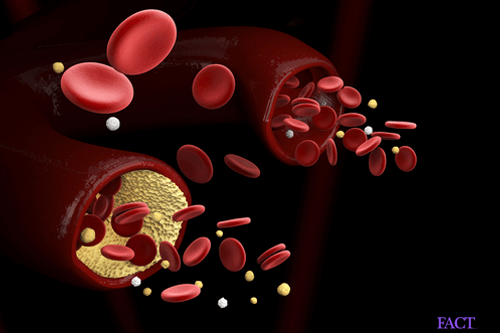The terms progesterone and progestin are often used synonymously within the medical community (in medical journals, etc) as well as by patients and the lay public, as if the two evoke the same action in the body. Unfortunately, this nomenclature mix-up often leads to misinterpreted evidence suggesting that the inclusion of any progestogen (progesterone or progestin) as part of hormone replacement therapy may increase the risk of breast cancer and implying that progesterone receptor signaling can contribute to tumor formation. However, just as the assumption that progestins and progesterone are identical in their actions and chemical make-up is erroneous, so is the assumption that both contribute to breast cancer risk. For clarification, here is a quick definition of these terms:
Progestogen: A class of hormone that exert their effects through binding to the progesterone receptor. This large class includes both synthetic progestins and endogenously produced or bioidentical progesterone.
Progestin: A class of synthetic progestogens that are most commonly used for HRT and in hormonal contraception. These molecules are NOT the same as progesterone.
Progesterone: An important hormone produced in small amounts in the adrenal glands, but primarily by the corpus luteum and the placenta. This term is also used to describe any molecule that is identical to the hormone produced in the human body.
The Link Between Breast Cancer and Progestins
The increased risk of breast cancer associated with progestogen-containing hormone replacement is associated with progestins only, and most of the studies have been done specifically on medroxyprogesterone acetate. It is well recognized that breast cancer risk is not significantly increased with native, bioidentical progesterone. While the safety and breast tissue benefits of bioidentical progesterone is well established in the literature, it is likely that the findings of the Women’s Health Initiative coupled with the medical community’s substitution of the word progesterone when discussing the adverse effects of progestins is what results in the confusion that leads to a misunderstanding of bioidentical progesterone’s risks and benefits. Recent study findings compound what we know of bioidentical progesterone, suggests progesterone and the progesterone receptor play multiple protective roles in breast cancer tumors, and may help shape a shift in this way of thinking.
Typically, breast cancers are assessed for their receptors (estrogen receptor alpha (ERα, progesterone receptor (PR)) and HER2 expression in order to help guide treatment options, with estrogen and progesterone receptor positive (ERα+ PR+) tumors having a better clinical outcome than estrogen and progesterone receptor negative (ERα+ PR-) because the presence of hormone receptors on the cancer cells allows for hormonal influence in the growth and behavior of the cells. Hormonal treatments in these cases have primarily been focused on ERα antagonists, however clinical response to ERα antagonists can vary. Focus has been placed on the presence of receptors at diagnosis to define subtype and guide treatment; however, perhaps overlooked is the hypothesis that PR expression (like the ERα is an innate positive modulator of cancer cell proliferation. A recent study, published online July 8 2015 in Nature confirms that the progesterone receptor in breast cancer serves as a “molecular rheostat” to off-set activity at the estrogen receptor. Significant findings of this publication include progesterone’s role in reprograming of the ERα binding events and its ability to block ERα+ tumor growth. In addition, the authors conclude:
Testing to identify neurotransmitter imbalances and then addressing them with amino acid precursors and appropriate cofactors may prove to be a safer way of treating depression and chronic pain.
The PR is not merely an ERα induced gene target but is also an ERα associated protein that modulates the ERα complex behavior
In the presence of agonist ligands, PR associates with ERα to direct ERα chromatin binding events within breast cancer cells, resulting in a unique gene expression program that is associated with a positive clinical outcome
Progesterone blocks ERα+ tumor growth: Progesterone inhibited oestrogen-mediated growth of ERα1 cell line xenografts and primary ERα1 breast tumor explants and had increased anti-proliferative effects when coupled with an ERα antagonist
These findings may have significant impact for treatment approaches to breast cancer and the more than 1.5 million women worldwide that are impacted by a diagnosis each year. Find out more about hormonal influences on breast health at Labrix Advanced Workshop in Las Vegas, January 16 and 17. Labrix staff physicians along with Medical Director Jay Mead MD and CEO/Associate Medical Director Erin Lommen ND will dive deeper into clinical cases and concepts relating to hormone, adrenal and neurotransmitter optimization. Register by September 30 and receive a $50 testing credit on your account after completion of the workshop. Use promo code MARKETING to lock in this offer! Click here to register
References:
Mohammed et al. Progesterone receptor modulates ERa action in breast cancer. Nature 2015
Bentel, J.M. et al. Androgen receptor agonist activity of the synthetic progestin, medroxyprogesterone acetate, in human breast cancer cells. Mol. Cell. Endocrinol. 154, 11-20 (1999).
Fourniear, Al, Berrino, F. & Clavel-Chapelon F. Unequal risks for breast cancer associated with different hormone replacement therapies: results from the E3N cohort study. Breast Cancer Res. Treat. 107, 103-111 (2008)






